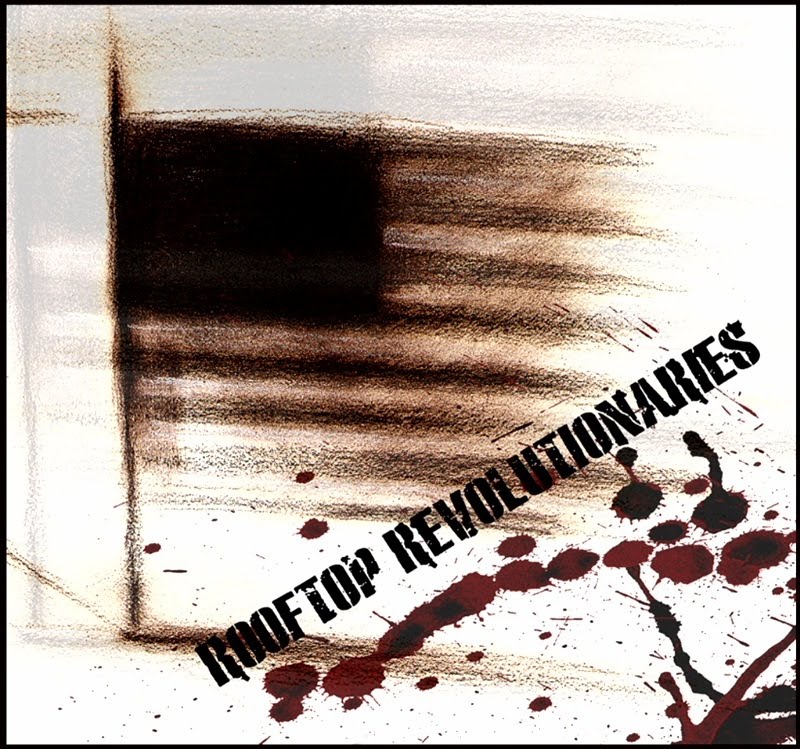
Well, we certainly made an entrance: the here-comes-the-cavalry yankee yell, guns blazing, stores-a-looting, oil fields a-pillaging (don't mention the WMD's - cough, cough), and now, we're making a quiet, subtle exit: a solemn flag lowering ceremony at the bunker Baghdad airport, a few predictable words from Defense Secretary Panetta and then...the end.
More than 8 years after the start of the Iraq war, the last of the US troops have left.
And, that's pretty much that. The whole affair smacked of the disillusioned disappointment in this democratic crusade. As many Iraqis have said, "It's worse now than it was with Saddam." One man commented that although he hated Saddam, when he ruled, Iraqis could safely walk the streets, so long as they didn't openly oppose his rule. Now, they are afraid to go out at all. Human rights organizations estimate the Iraqi civilian death toll to be upwards of 100,000. Over 4,000 US troops lost their lives. Nearly $800 billion have been spent, and as you can see from the image above, taken from a British paper, the other numbers associated with this arrogant endeavor cast a dark shadow on an already clouded and soiled operation.
Both Prime Minister Nouri al-Maliki and President Jalal Talabani were invited to the ceremony. Neither came. The only notable Iraqis to attend were a former defense minister and three generals who have worked closely with U.S. forces and who frequently pressed for them to stay.
Others have made the case for pressing on, considering that sectarian violence continues, although significantly less than the surge around 2006/07 when our ground troop count rocketed to 168,000. Others argue that the country is not ready to take full control, having had all their own security forces and army disbanded ; that leaving now would effectively pull what little security was available right out from under Iraqis.
However, few Iraqis support the US's prolonged occupation. And with good reason. As the man said above, things are a considerable cluster fuck compared to the organized yet dictatorial rule of Saddam Hussein.
For example, prior to the death of Al Qaeda enemy Hussein, the terrorist organization was absent from Iraq's "godless" regime. Since his death, Al Qaeda has begun to win favor in the disorganized country, along with the long suppressed militant Shia groups.
On the flip side, the northern Kurds, who were brutally persecuted under Hussein, enjoy new found freedoms in politics and business, with an oil-rich economy fueling happy handshakes between their representatives and ours.
But victories such as those are few and far between.
The fragmentation of a country as rich in natural resources as it is in cultural conflict, paints a messy picture of warring clans fighting for what we left.
And one of the critical things we didn't leave was any sense of organization or strong hierarchy a country like that requires.
Why? Well, because we have no idea how to. We planned for six months before invading Iraq, and that lack of preparedness and understanding has followed us on this near-9 year run. It is a haunting sting for those who were sent and those who were left behind to try and make sense of things.
As the last troops make their way home, the only thing I can make sense of is that there was no sense in it. This wasn't a war of honor or heroic acts. As the past shows, we had no problem with Hussein being a vicious dictator - except for the fact that he wasn't OUR vicious dictator. He snubbed us one too many times. He posed no threat to us, militantly, economically or otherwise. This venture was purely financial. It was a flex of muscle and top tiers marking bottom lines. It wasn't about freedom or weapons. It was about power, resources and financial opportunities.
I sit, thinking back to the wars I heard about growing up - today, it seems almost fictional: Hitler, the bad guy must be stopped. US is here to help! Look at our burgeoning economy, our proud nation coming to the aid of our European friends in need!
Today, as our economy limps along, and a fractured nation barely notices the murmur of the end, I can only hope that we learn something here.
I can only hope that we see the parallels - the parallels of a nation usurped by greed and these blood soaked escapades that will always end the same: no victory, just a silent flag lowered, perhaps more indicative of the ideals we failed to uphold...
Billions were spent and billions were made. Thousands of lives were lost and many were lifted to the gilded arches of riches and political power.
I am forever grateful to those who fight for our country, who stand up to protect us should we need it.
And I will forever fight, my anger a sharpened tool of determination, against those who use their own people as pawns for fortune and frivolous business ventures.
I am glad the troops are home. I am greatly disappointed that they were ever there.
Welcome home. Let us hope that you will never again be sent on a mindless money mission. That is our duty - as citizens, to protect those who would protect us, from ever having to war under these conditions. You served us. Now we must serve you. We, the people, must learn from this, or Iraq will be a blueprint for many more freedom crusades. Don't let that happen.
Think. React. Do Something.
